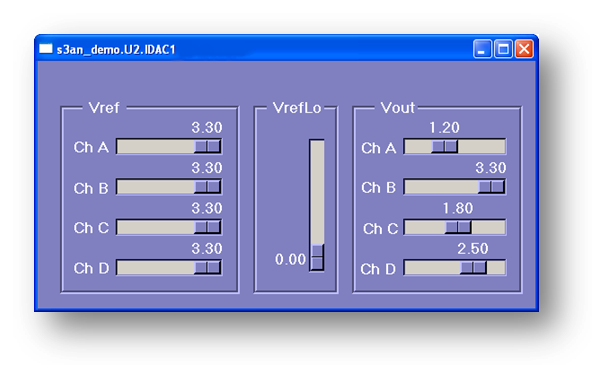Frequently asked questions:
What's different between using the new 1149.1-2013
and 1687-2014?
The approaches are philosophically different. 1149.1-2013 requires IP or "instruments" to have a Test Data Register interface provided by the instrument provider. The silicon instruments must operate via only the TAP pins, System clocks, power and system reset. All instruments must be re-useable at board and system level in order to get correlation with ATE based tests and rapidly improve yield learning. With both IEEE 1500 and IEEE 1149.1-2013 the scope of IC and board test is completely covered for the most complex instruments. 1687 introduces a new insertion langauge called ICL. The verilog-like langauge requires more specific connections of wires, gates, muxes where 1149.1-2013 takes a more abstract approach to describing IEEE 1500 wrappers and instruments. 1687-2014 has a focus on legacy IP which does not have a TDR, manufacturing scan chains and using IC pins to access instruments. This affects the abilty to re-run tests in the system due to the pin demands, lack of structured IC resets, complexity and need for manual PDL 'fix-up' for un-wrapped legacy instruemnts.
What's included in the free
download?
Windows NEBULA TCP/IP Client software with
base features of:
- BSDL library for common devices
- IEEE 1149.1-2013 BSDL database compiler with extensions for internal Test
Data Registers
- IEEE 1149.1-2013 PDL scripting language
- TCL interpreter with extensions for 1149.1-2013
- TK GUI developer with concurrent multi-instrument operation
- Single Step Debugger for PDL/TCL with breakpoints
- Register/Mnemonic Spreadsheet interactive viewer & control
- Pin toggler - Put devices in EXTEST and toggle outputs and observe inputs
- Program FPGAs and CPLDs via SVF
- SVF support - Record and Apply SVF
- SVF Single Step with stop-on-fail
- WGL Support - Record WGL patterns and Apply WGL patterns
from Synopsys TetraMAX
- Web based updates
- Optional paid remote support
iJTAGServer Intellitech Simulation Interface
Server - for VCS on Redhat Linux 64 bit, Cadence Incisive or Mentor Questa (Linux or Windows 64-bit).
iCableServerX- Intellitech's Window's
based cable server for Xilinx's USB Cable II JTAG Controller.
iCableServerA- Intellitech's Window's
based cable server for the Intel/Altera USB JTAG Controller.
iCableServerD- Intellitech's Window's
based cable server for the Digilent USB JTAG HS2 Controller.
Alarm Clock example files - Source and synthesized Verilog
with Internal Scan inserted by TetraMAX, BSDL and BSDL
extensions, Mnemonic support, TCL/PDL example files, Makefiles
for use with VCS on Linux-64. Example Instrument support for
Altera and Xilinx FPGAs.
Xilinx Spartan 3AN Starter Kit - Training/Example files
The Xilinx Spartan 3AN Starter Kit is a popular low-cost PCB designed by Digilent with a Xilinx Spartan 3AN and DC/DC, DAC, ADC components from Linear Technologies. Spartan 3AN Starter Kit description. Verified Registered users can download the source files which include the Verilog for controlling the instruments, PDL and TCL and GUI TCL sources. The step-by-step demonstration with examples in PDL/TCL is here and can be viewed by verified registered users: Spartan3AN Starter Kit Demo

A simple example script in PDL, the new language of IEEE 1149.1 is as follows. This sets a voltage on the LTC2624 DAC available on the PCB.
iScope s3an_demo.U1.SPI_MUX # set the scope to SPI instrument
iWrite SELECT DAC1 # set the DAC to talk on the SPI bus
iApply # send the data over the cable
iScope s3an_demo.U1.DAC1 # DAC instrument
iWrite command WRINREG_UPD # set the write-update command for the DAC
iWrite ADDRESS DAC_A # set DAC_A (not DAC_B)
iWrite DATA V_2P06V # set the DAC output to 2.06V
iApply # send the data over the cable
Each # character is a comment. The iApply takes the data and sends it to the target.
What's Coming?
IEEE 1149.1-2013 BSDL suffices for 3D-SIC stacks and 2.5D ICs. Contact Intellitech for information supporting IC to HBM (High Band Width Memory) and Hyper-Memory Cube (HMC).
Future:
- iCableServerX for 64 bit Linux. This is a Linux version
of the Intellitech Cable Server for the Xilinx USB pod.
- 64 bit RedHat Linux based NEBULA Client
- STIL pattern recording support
- Additional Simulator support. (Are you using a simulator/verification engine other than the three we support?)
Why is this Free? Is there a catch?
There is no catch. Free tools will enable 1149.1-2013 to have wide-spread adoption. Free
versions of NEBULA will enable leading companies to do real
productive work with JTAG based access to on-chip scan-chains
and at the same time enable Universities and research
institutions to perform useful research in the area of on-chip
JTAG DFx and Instrument register access. Users will be able to
validate the instrument drivers written in PDL or TCL against
the simulation of the instrument and then against the actual
hardware. With free software the community will have a common
platform to validate instrument drivers and develop unique
instruments - that can be validated pre-silicon and used for
silicon bring-up.
Intellitech benefits as more ecosystem is developed to
increase fault coverage for embedded JTAG test. Intellitech has
educated the industry for over ten years on how to reduce
functional test development by embedding access to on-chip JTAG
test features with Intellitech's SystemBIST IC. JAF Test, JTAG
Assisted Functional Test, breaks the system functional test
challenge down into smaller manageable parts. Test development
can be done with just an understanding of the micro-parts, how
to execute a PRBS test over a serial link for example, without
the developer needing to know the entire mission mode
functionality of the system.
Intellitech may offer additional free opportunities or
charge token fees of US$100 to US$400 for additional
capabilities in the future. A very small fee for a tool in this
class. Each year Intellitech may ask you to re-validate your
email address.
Is "free" a sustainable business model?
Intellitech's primary revenue is not from this version of
NEBULA but from our components, IP, patents, methodologies and
high-end testers. There are many quality free software packages
today from FPGA vendors for instance. Many segments of the
industry are also using forms of free software. DimDim web
conferencing is a good example. As the use of the standard
matures and new capabilities emerge, there will possibly be
features of NEBULA that we reserve the right to charge for. You
may choose not to purchase those features. Support is not
included with the free software. Documentation on how to
install and operate the software is provided. If this is not
sufficient you will need to purchase a support package at $595
for a five (5) hour block of support time.
In order to download your free copy of the NEBULA client,
Xilinx USB CableServer, and ISIS, you must register on the
website here: Register.
What can I do with this now?
The software will allow you to describe internal test data
registers which are accessible via JTAG and import them into
BSDL using register_fields and register_mnemonics BSDL
extensions. It is possible to use NEBULA to create fully
compliant PDL scripts for register access. If changes in PDL
develop as the standards finalize updates will be provided to
support PDL. You can simulate your design in VCS and connect to
the JTAG ports of your design in simulation to validate TCL
scripts with JTAG register access. When the actual IC is
available, you can use a low cost Xilinx USB pod ($250 sold by
Xilinx) to access the on-chip JTAG accessible registers. If you
have TetraMAX you can generate ATPG patterns to apply via JTAG
and get diagnostics from TetraMAX. You can also write generic
TCL scripts which you can record as WGL ATE tester patterns.
Engineers can also toggle pins, program FPGAs or write TCL
scripts to toggle pins. Intellitech's full software packages
have built-in support for board level ATPG, memory interconnect
and flash programming. It would be possible to create your own
TCL/TK scripts if you desire to emulate some of the high-end
functions of Eclipse our board test product.
In order to download your free copy of the NEBULA client,
Xilinx USB Cableserver and simulation interfaces, you must register on the
website here: Register.
|







